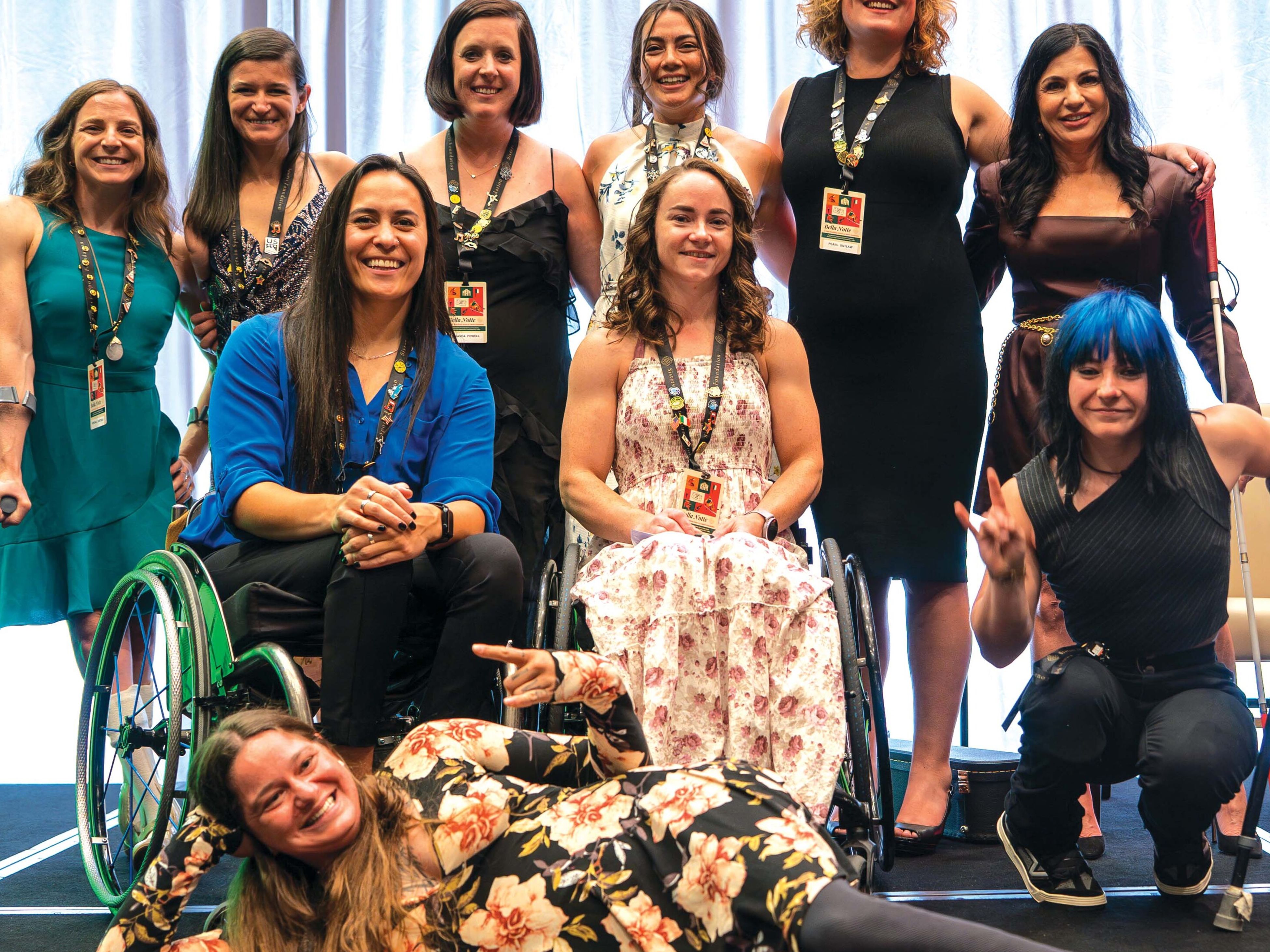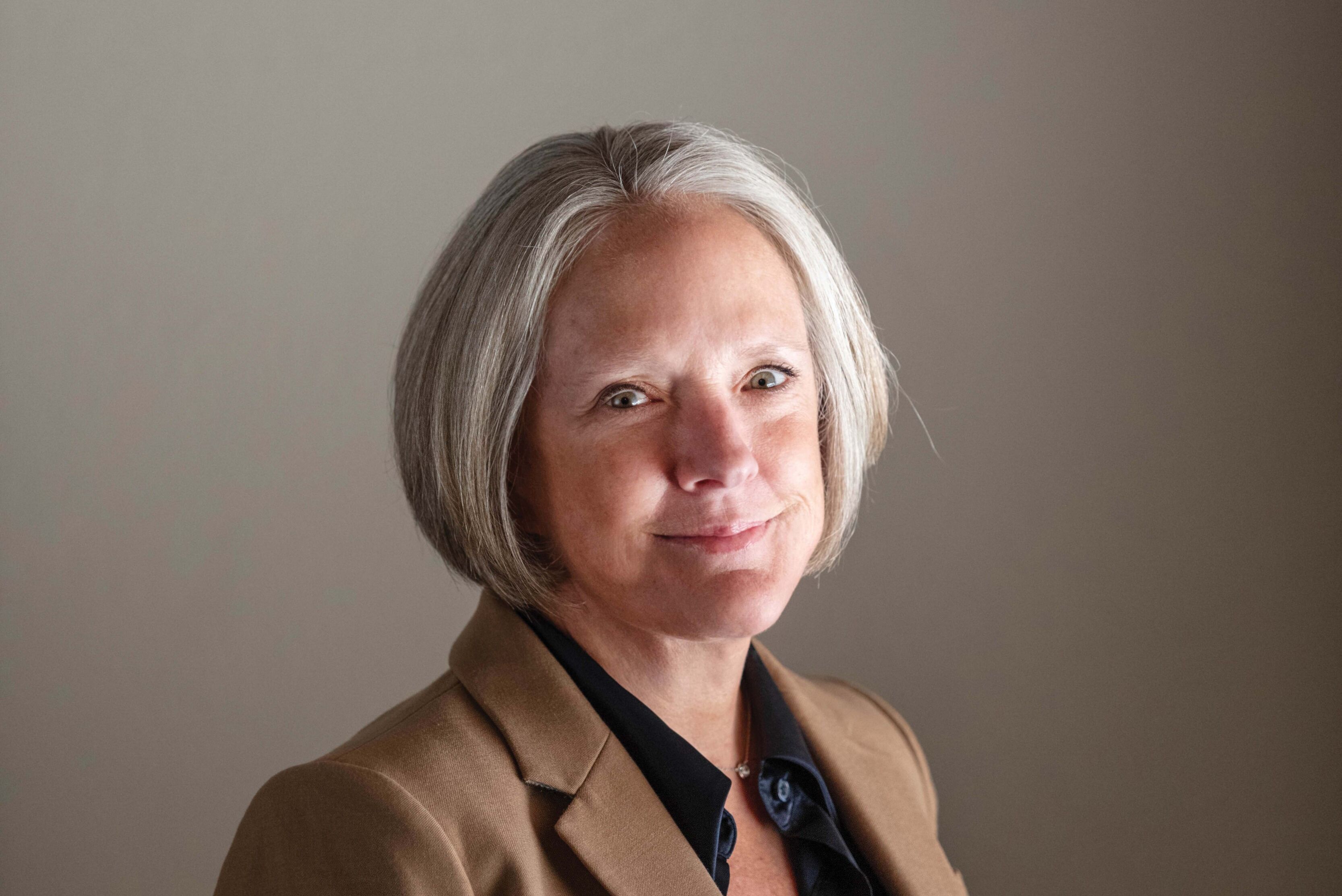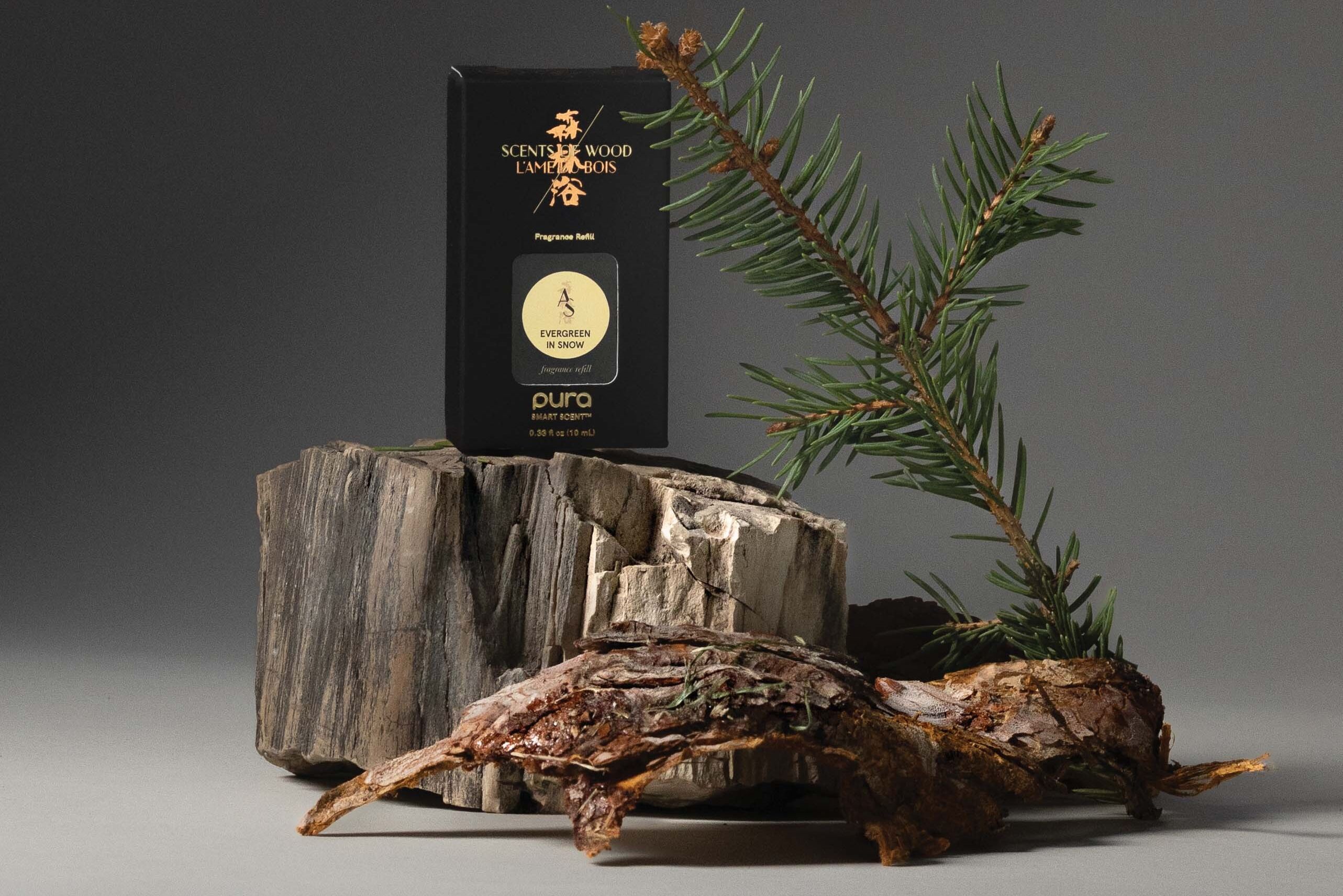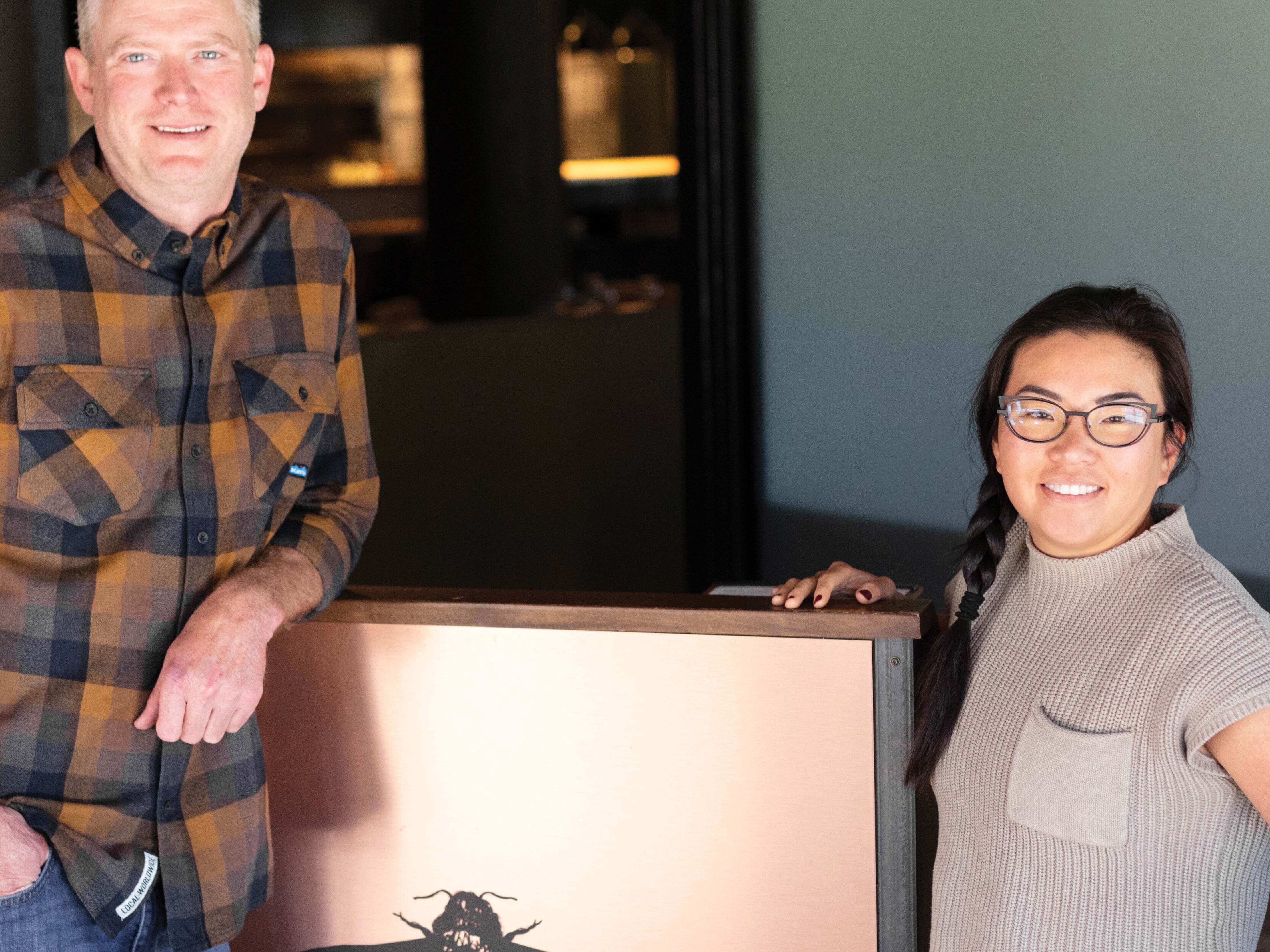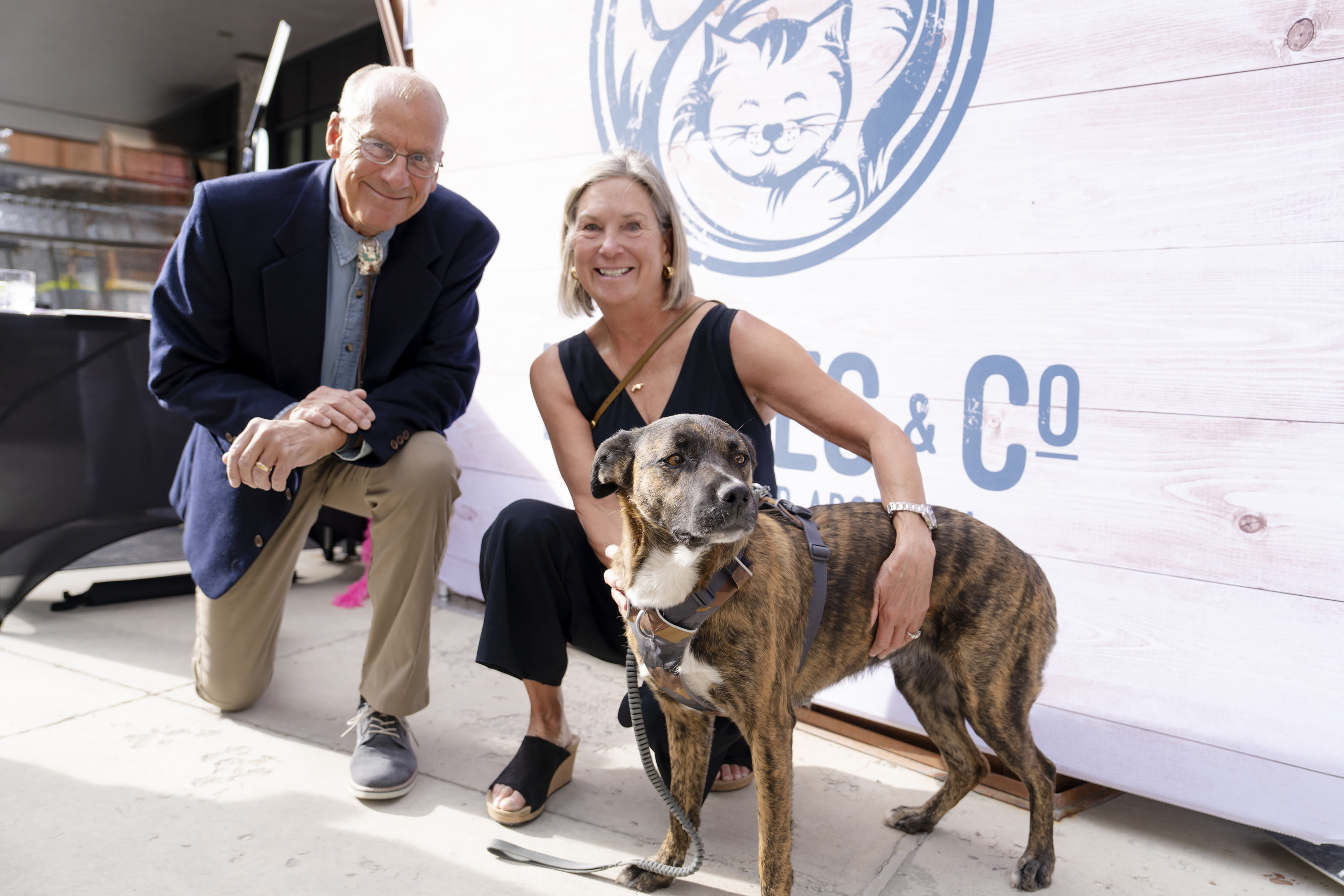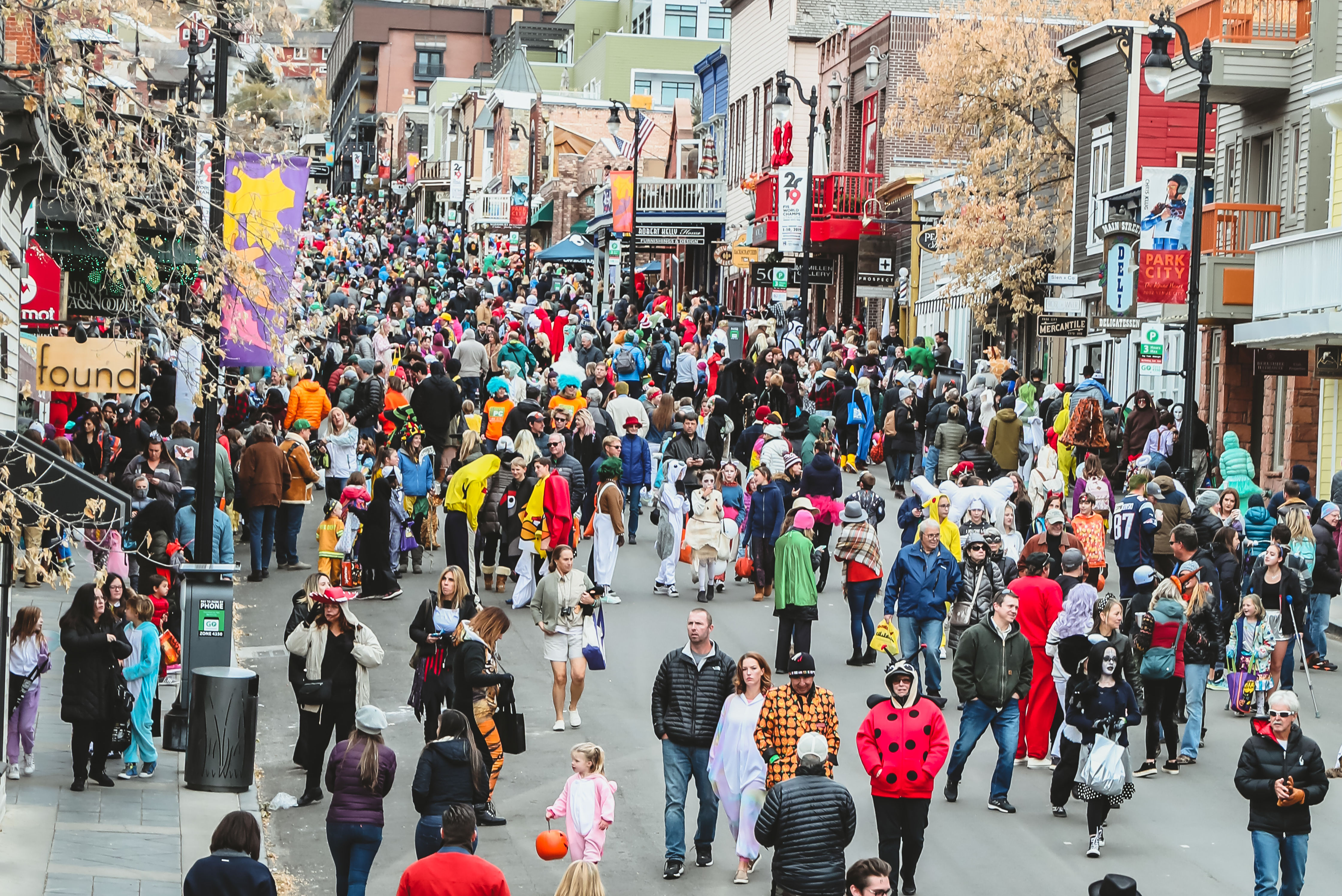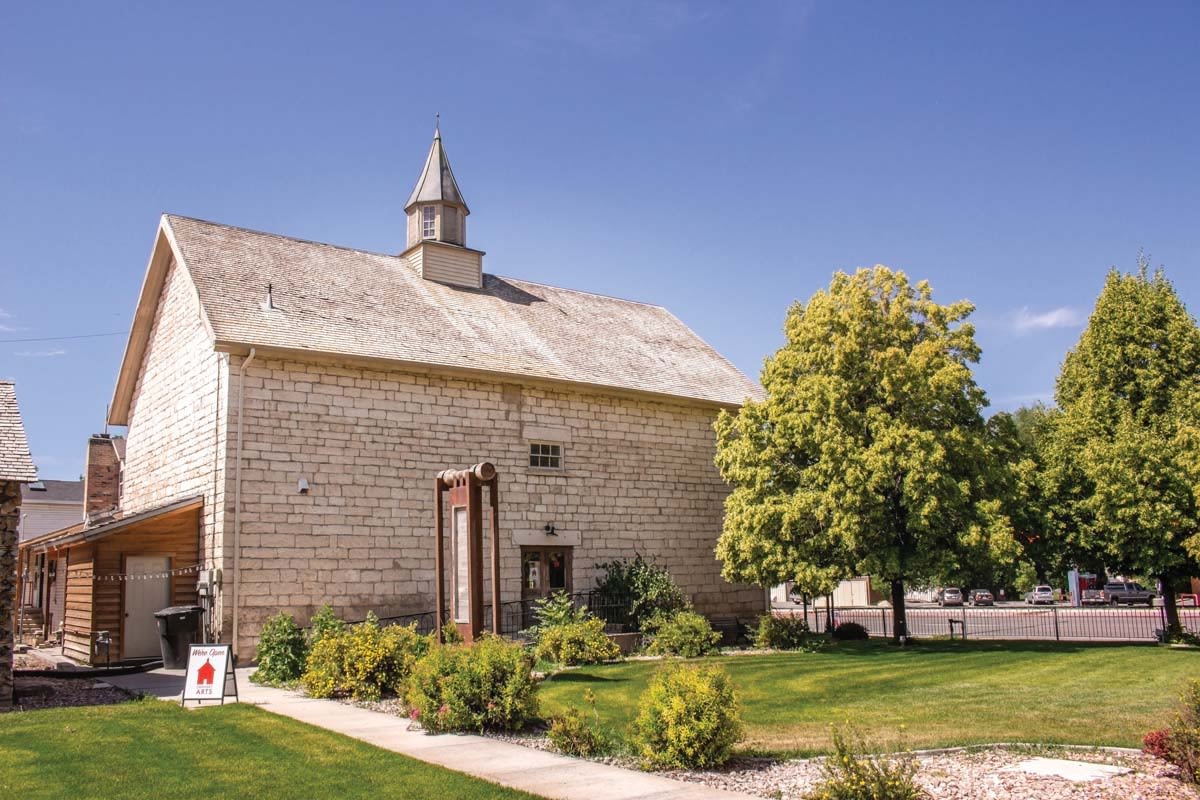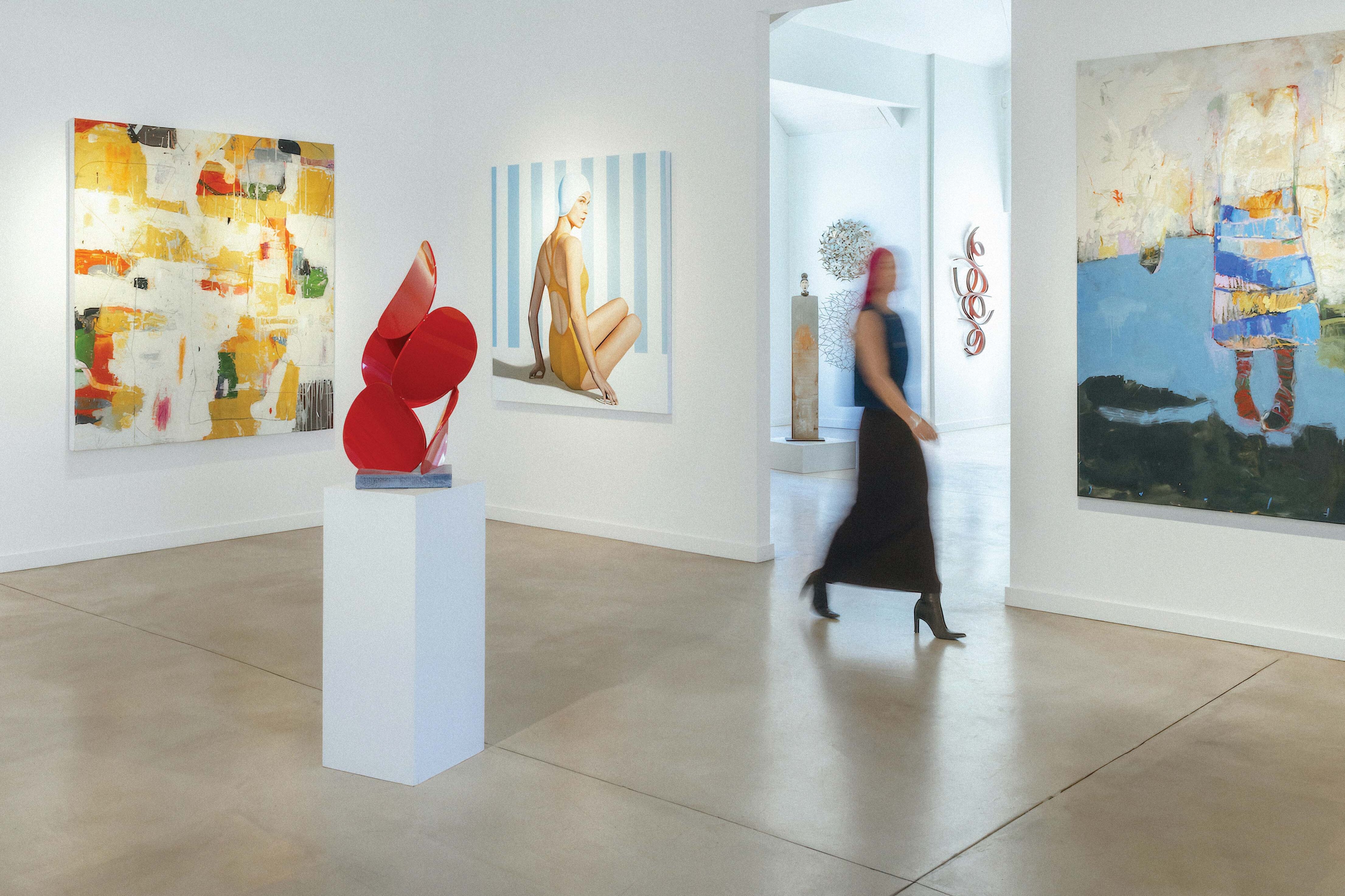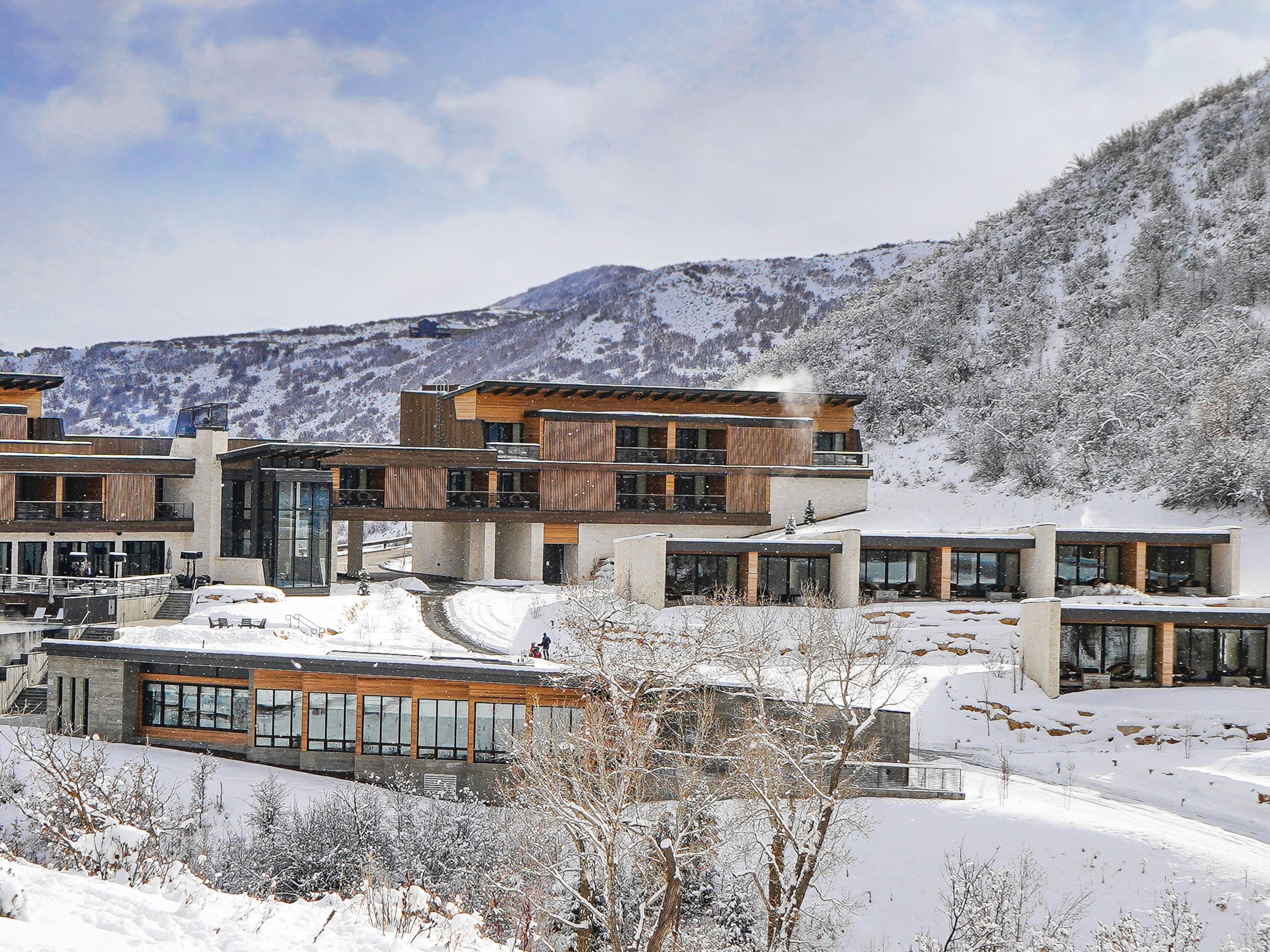Park City's Main Street Mainstays

Running a business in Park City’s seasonal economy is not for the fainthearted. Challenges faced by the town’s plucky independent entrepreneurs range from staff shortages and shoulder season slowdowns to unpredictable
snowfall—either too much or too little—and stiff competition from well-funded
national chains. Yet, despite these hurdles, the following six small business owners are not only persevering but are making invaluable contributions to the vibrancy of Utah’s most iconic mountain town. Here, we highlight their stories.

Kathy Pederson
Co-owner, Dolly’s Bookstore
Kathy Pederson and I are chatting on the phone when she stops short. “Do you mind holding on for just one minute?” “Of course,” I say and listen as she turns away from the phone to say, “Do you need some help?” After directing a customer to where the Gilbert the Moose Learns How to Ski picture book is shelved, Pederson returns to the phone. “I’m so sorry!” she says. “Now, where were we?” Such is the multitasking existence Pederson has lived for the past 26 years as co-owner of one of Park City’s most beloved businesses, Dolly’s Bookstore.
Dolly’s was founded by the store’s namesake, Dolly Makoff, in 1972. Pederson and her husband, Chip, became the shop’s third owners when Norm and Claire Weiss decided to sell in 1998. Since then, the only significant changes the Pedersons have made to their cozy Main Street space occurred 18 months after they purchased it, when they replaced the bookstore’s music and cards section with a small Rocky Mountain Chocolate Factory franchise. “We thought that being able to get a snack while browsing books would be a good combo,” Pederson says, “and people have loved it.”
But the chocolate-and-books combo is not all people love about Dolly’s. In addition to browsing the store’s well-curated book selection, both locals and visitors return on the regular to shop the store’s creative gifts, look at the community posting board, and, of course, see the cats. “We inherited the original Dolly the tuxedo cat from the Weisses when we bought the store,” Pederson says. “That cat was a hoot. She’d wander in and out of the store all day but then would come back when one of us would lean out the front door and call her in before locking up.” When Dolly failed to return by closing time, Kathy and her staff knew to go up and down Main Street, peering into storefronts in search of the wayward cat. “She was really good at sneaking into stores without the shop owners realizing it,” Pederson remembers. Dolly no. 3 died earlier this year, but Pippi, the store’s current resident kitty, remains alive and well. And, as of this magazine’s press time, the staff was on the hunt for Dolly no. 4.
Pederson and her family are committed to stewarding Dolly’s for as long as they can. “Our family believes in this community,” she says, as her voice chokes up. “Yes, a lot has changed and there’s more traffic, but the small-town charm that was here when we moved here is still here. I love things like catching a glimpse of people standing in the middle of Main Street to take a selfie and all the ‘we’re so glad you’re still here’ we hear from customers who take their annual ski vacation here. And I am so grateful to all the locals who continue to support us. It’s the goodness of the people we get to be with every day that makes it all worth it.” 510 Main St, 435-649-8062

John Kenworthy
Owner, Flanagan’s on Main
Call it the luck of the Irish, or perhaps an act of God. Either way, John Kenworthy attributes not only his good fortune, but his very existence, to a man who lived and died well before he was born, Father Edward J. Flanagan. The priest, born in the 1880s and now being considered for sainthood by the Roman Catholic Church, is the namesake of Kenworthy’s lively Irish pub and family-friendly eatery.
The connection between Kenworthy and Father Flanagan began in Omaha, Nebraska, in the late 1910s. At that time, Kenworthy’s grandfather Charles was a homeless 12-year-old who’d often jump trains to hustle passengers. The police eventually caught up with Charles and delivered him to Boys Town, an orphanage opened by Father Flanagan in 1917. Charles stayed on at Boys Town and joined the traveling minstrel show formed by the priest to help fund the orphanage. “All through my childhood I heard stories about their stops in Park City from my grandfather, which was like the wild, wild West then and not like the rest of Utah,” says Kenworthy. “My grandfather loved the magic of Main Street back then, just as I love it now.”
More than 50 years later, inspired in part by his grandfather’s fond boyhood memories, Kenworthy and his wife, Nancy, relocated from California to Park City and opened Flanagan’s on Main. “Who knows what would have happened to my grandfather and all the rest of the boys at Boys Town if it hadn’t been for Father Flanagan,” says Kenworthy.
He admits it took a while to get used to the seasonal ebbs and flows of business in Park City but feels that the feast-or-famine climate helped build unity among his diverse staff. “The staff like and respect one another, which is exactly what I was shooting for—it’s what Father Flanagan instilled in all his wayward and abandoned boys—and I am very proud of that,” he says.
While business is brisk, Park City’s skyrocketing popularity has Kenworthy concerned about the health of the community over the long term. “The cost of living here is making it tougher and tougher for kids in their twenties and thirties to come to Park City to simply be a ski bum for a gap year,” he says. “I just hope the kids planning the future here are really smart and understand how important it is to preserve Old Town’s magic for the next 100 years.” 438 Main St, 435-649-8600

Ken Davis
Co-owner, Java Cow
The cheery yellow building on the corner of Main and Fourth Streets, home to Java Cow Coffee & Ice Cream, is hard to miss. Lines snaking out the door onto the sidewalk are typical thanks to the made-in-house ice cream, pastries, breakfast sandwiches, quiche, crepes, and coffee, which draw locals and visitors alike. Oh, and the building’s Banksy artwork, painted by the famous graffiti artist on the Fourth Street side during the 2010 Sundance Film Festival, is one of the town’s most photographed public art pieces.
Skiing drew Java Cow owners Ken and Marcie Davis to Park City almost three decades ago. “Back then, Park City was infinitely less expensive than other ski towns in the West, and also a lot easier to get to,” says Ken. But investing in their business and, in turn, the community, is what has motivated these native New Yorkers to stay put here for so long. “I need to keep busy,” says Ken. “I’m always up for a challenge and get a lot of satisfaction from putting things together. And I’m certainly not going to ski or play golf every day.”
In the late 1990s, following a career in corporate retail, Ken launched a quarterly ad-based mailer magazine on Long Island where he, Marcie, and their young daughter lived. The flexibility of their small business gave him an idea. “We decided to go skiing for two months in the winter in Park City,” he says. Two months gradually became four, during which time they purchased a home in Park City’s Silver Springs neighborhood. “And then when our daughter’s school back on Long Island told us that she needed to come back and attend classes or she’d be unenrolled, we decided to make our stay here permanent.”
Back on the first day the Davises spent in Park City, their daughter asked to be taken to get ice cream. “And that’s how we found Cow’s,” says Ken, who was so impressed with the shop that when it went up for sale in 1999, he purchased it. When the franchise was up for renewal, Ken declined and decided to start making ice cream himself: “I called the guy from back east who was the inventor of the cookies-and-cream ice cream flavor and asked if he could teach me to make ice cream. He said yes, and two days later I was on a plane.” From then on, propelled by his foodie sensibilities and “the pride of making your own product,” Ken and Marcie evolved their business into one where everything they serve is made from scratch, on the premises.
Along the way, Ken has been an active participant in the Main Street business community, serving at one time as Historic Park City Alliance president. “Main Street has a retail mix that you don’t see elsewhere. It’s a fun little street with a lot going on,” he says. “But it’s got to be looked after.” 402 Main St, 435-647-7711

Randy Barton
Theater Manager, Egyptian Theatre
Randy Barton’s decades-long love affair with the arts in Park City began while he was still a teenager living in his native Granger, Utah—then a small town now called West Valley City. “I saw Leo Kottke and Gordon Lightfoot play at Park City Ski Area when the resort changed its name from Treasure Mountain in 1971,” Barton says. He was so smitten with Park City, in fact, that just four years later, he tried to purchase the Egyptian Theatre, then called the Silver Wheel Theatre. “But I was outbid by a group of community members with cash who then sold the building to Debbi and Randy Fields, founders of Mrs. Fields Cookies.” He stuck around, however, and joined the theater’s resident acting troupe, The Kimball Players, later renamed Park City Players. And then in 1981, he became the theater’s house manager for the U.S. Independent Film Festival, the precursor to Sundance.
In 1993, when most of the Mrs. Fields cookie company was gobbled up by lenders in exchange for debt forgiveness, Barton helped form Save Our Stage (SOS), a nonprofit spearheaded by JoAnn Krajeski and Rick Rogers to purchase the theater. The effort was successful and not only did SOS likely prevent the theater’s redevelopment into something else, SOS was also able to restore the theater to better-than-original condition before reopening it in 1994.
The next challenge faced by the Egyptian arrived with the economic downturn of 2007–08, which sank the theater’s management entity, Park City Performances, in more than $300,000 of debt and forced the layoff of most of the theater’s employees. And so, when the Egyptian’s board of trustees asked Barton to take on the role of theater manager, tasking him with figuring out the theater’s abysmal finances, “I agreed and requested 90 days to turn it around,” he says. “My plan centered around having something going on in the theater every week of the year and creating a social component.” It took a couple of years, but consistent bookings and creating the Pharaoh Club, a theater underwriting group with members-only perks and get-togethers, effectively allowed Park City Performances to get out from under its debt and rebuild the staff.
In 2012, the Egyptian Theatre hit yet another speed bump when the basement space at 333 Main—home to its kids programming, YouTheatre—was sold. The new owner gave YouTheatre the boot and quickly put the space back on the market. “So, I negotiated a contract to buy it, and we again used Save Our Stage, this time calling it Save Our Space, to fundraise,” Barton says. Within 18 months, SOS amassed $4.5 million, covering not only the purchase of the basement property but also a full renovation, including refurbishment of a historic tunnel under Main Street that connects what is now called Egyptian Studios to the Egyptian Theatre.
When asked about his proudest moments helping steward the Egyptian Theatre over the past 50 years, Randy is unequivocal: “Keeping the theater, first of all. Making YouTheatre free for all kids in Summit and Wasatch Counties, and getting to work with such an amazing staff. The past 50 years have shown me that anything can happen. And when it does, we just keep on doing what we’re doing.” 328 Main St, 855-745-7469

Tana Toly
Co-owner, Red Banjo Pizza
Few in Park City can claim roots that run as deep as Tana Toly’s, who is among the sixth generation (and counting) of her family to call the town home. Branches on one side of the Toly family tree begin with Yugoslavian immigrants, attracted to the area by the promise of work in the silver mines. The other side descended from Ephraim Hanks, a somewhat notorious Mormon polygamist who fathered 26 children, favored locally made whiskey, and was a bodyguard for Brigham Young, the second president of the Church of Jesus Christ of Latter-day Saints.
In 1962, as Park City’s mining era was making its final gasps, Tana’s grandparents, Mary Lou and Pete Toly, purchased what was then the Park Tavern on Main Street. They immediately changed the name to Red Banjo but continued to operate it as a bar until converting it to a family-friendly pizzeria in the mid-1970s. When Mary Lou and Pete divorced a short time after Red Banjo’s concept change, Mary Lou kept the business, which she ran while single-handedly raising three children and, later, helping raise her grandchildren.
“We all grew up in the Red Banjo. I’d spend hours hanging out there as a kid with my grandma, doing things like learning how to count back change and going to the bank with her,” Tana says. “There was an arcade in the basement until I was about 10 and I’d always have a friend willing to come with me on the bus to the restaurant after school for video games, Dr. Pepper, and cheese pizza.” Now, while Mary Lou remains the restaurant’s “chief decorating officer,” Tana and her dad, Scott, are its current co-owners, while Tana’s brother, Tyler, is the kitchen manager.
Another of the many lessons Mary Lou passed down to her family is to respect and value the staff, always. In this regard, the Tolys offer employee housing in a duplex they own in Old Town, and the restaurant runs a sober kitchen. “It provides a safe place for people recovering from drug and alcohol addiction to earn a living and work on becoming a better version of themselves,” Tana says. “We believe in investing in wellness for all our employees and get all of them ski passes or passes to the MARC.” The Red Banjo is also a big supporter of the Park City Nordic Ski Club and allows club skiers flexible work hours tailored around training and competition schedules.
Tana believes in giving back to the greater Park City community as well. Since 2021, she’s served on the Park City Council and, “barring anything unforeseeable,” says she plans to run again in 2025. “Before I ran for council, I was on five boards where I learned so much. And having been a part of the community for so long, and being a small business owner, I felt like giving back in that way was just the next natural step,” Tana says.
Now, as she did, Tana’s niece and nephews spend a lot of time in the Red Banjo after school, on the weekends, and during the summer. “My nephew sells snow cones out of the restaurant during the Park Silly Market,” Tana says. As such, providing the option of a future at the Red Banjo for the next generation of Tolys is where Tana and her family are focused now. Options they are considering include expanding the restaurant back to Swede Alley, enabling a much-needed kitchen expansion and the ability to install a larger outdoor deck. But have no fear. Tana promises the Red Banjo will remain a family-friendly, pizza-themed restaurant. “Staying consistent has been the key to our success,” she says. “I love that people who had birthday parties and went on dates here in the 1970s still regularly come back when they are in town. I feel like Red Banjo reflects the values of our community.” 322 Main St, 435-649-9901

Jesse Shetler
Principal Owner, No Name Saloon
Jesse Shetler’s arrival story mirrors that of many twentysomethings who flocked to Park City in the 1980s and ’90s, attracted by the prospect of working a little to ski a lot. “I grew up in Chicago and I knew this couple who had retired here and needed their stuff driven across the country,” Shetler says. “So, me and a buddy signed up to do that with the plan of staying over a few extra days to ski. Well, those two extra days turned into the rest of the winter and then years and now decades.”
Shetler supported himself that first winter by cracking beers at Ryan’s, a now-closed watering hole co-owned by former three-term Park City mayor Dana Williams and his brother, Evan. “Working there gave me a taste of what other people here had already figured out: doing whatever you want during the day, whether that be skiing or snowmobiling or just sleeping in, and then going to work and hanging out with 60 to 80 of your best friends all night and getting paid for it,” he says.
In 1999, Shetler signed a lease on Main Street’s distinctive Spanish colonial revival building that for decades had been home of The Alamo, a tavern known for its local following and as the unofficial headquarters of the Park City Muckers rugby team. But, Shetler explains, “Forty years of beer-soaked fun had taken its toll on the ’Mo.” And so, after a total building remodel, including adding a kitchen to enable him to serve the now-famous Buffalo Burger, Shetler reopened the bar in January 2000. He subsequently lost a trademark lawsuit over The Alamo name, and when “I couldn’t think of any name the community would positively embrace, I registered it as the No Name Saloon.” Amid the improvements and new moniker, however, Shetler was careful to keep the bar’s distinctive gathering-place persona alive. Testament to this occurred last fall when the No Name was chosen to host a reunion of people who moved to Park City in the 1970s. “The folks who came here in the 1970s embraced me when I got here,” Shetler recalls. “They were the ski bums and hippies who spearheaded a shift in Park City from mining to skiing.”
Though Park City has changed plenty from when Shetler alighted here in 1982, he asserts it is still a great place to be. “Do I wish some things, like parking, had been sorted out ahead of time? Of course. But I’m not the kind of guy to sit on the sidelines and say what has gone right and wrong over the years. I’m just overjoyed there are still people who want to run for office and fight the good fight,” he says. “I got into the hospitality business because I like to have fun, and in Park City, you’re still never alone in that quest to enjoy what you do and where you live.” 447 Main St, 435-649-6667
